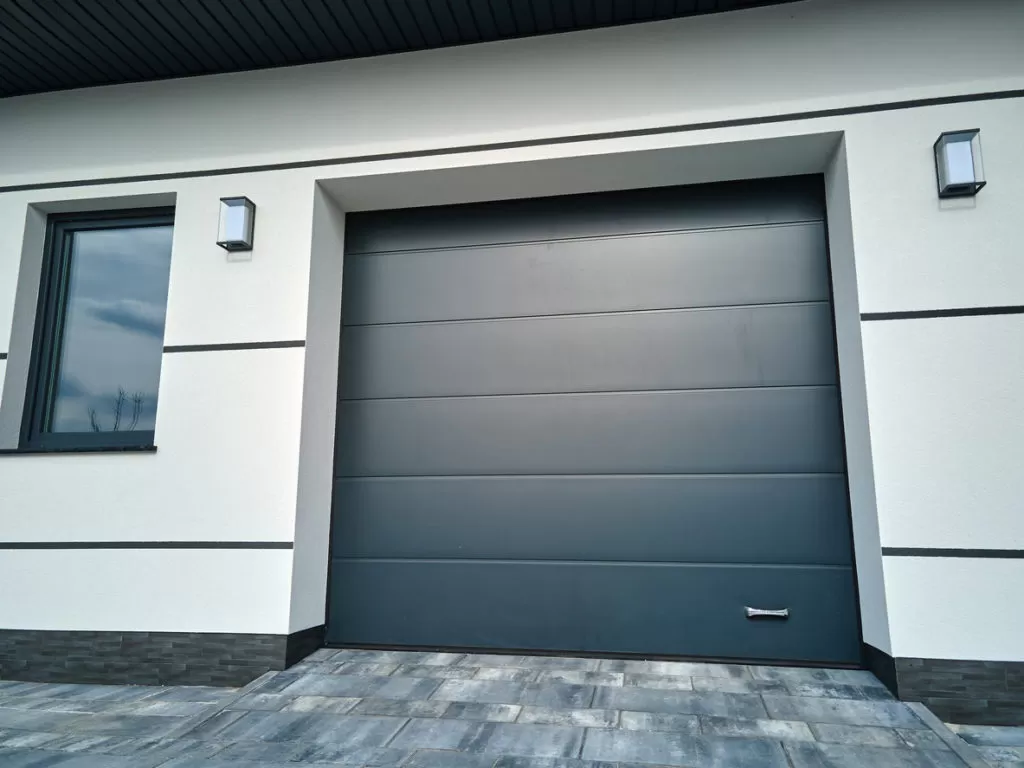There are many types of garage door materials, each of which provides different benefits.
Choosing the right garage door is not as simple as it may appear. It’s an investment that requires careful consideration. You have to factor in your budget, the aesthetic appeal, the climate of your area, and the level of maintenance you’re prepared to undertake. Understanding the various types of garage door materials available can help you make a more informed choice.
Most homeowners overlook the significance of garage door materials. They’re pivotal in determining the durability, maintenance level, cost, and overall look of your garage door. Not to mention, the right material can enhance your home’s curb appeal, potentially increasing its value.
At Your Garage Door Guys, we often encounter customers who are unsure about the best material for their garage door. We’ve compiled this guide to shed light on the common materials used, their pros and cons, and other essential details to help you make the right decision.
Types of Garage Door Materials
Garage doors come in a variety of materials, each with unique properties.
Steel doors are durable and robust, perfect for harsh climates. Wood doors provide classic elegance and warmth. Aluminum doors are lightweight and modern, ideal for contemporary homes. Lastly, fiberglass doors offer versatility, able to replicate the look of other materials while being resilient and low-maintenance.
Let’s take a closer look …
Steel Garage Doors
Steel is arguably one of the most popular materials used for garage doors. Renowned for its durability and strength, steel can withstand the toughest weather conditions without compromising its functionality or aesthetic appeal. Steel garage doors come in a variety of styles, designs, and finishes, including options for insulation to improve energy efficiency.
However, they can be prone to dents and scratches and may rust over time if not adequately maintained. The cost of steel garage doors can vary significantly based on the thickness and quality of the steel and the level of insulation.
Wooden Garage Doors
Nothing quite matches the natural beauty and warmth of wood. Wood garage doors offer a timeless appeal that can complement any architectural style. Whether you prefer a rustic or contemporary look, you’ll find something that suits your preference.
On the flip side, wood requires more maintenance than most other materials. It needs to be regularly painted or stained to preserve its beauty and prevent warping, rotting, or cracking. The cost of wooden garage doors depends largely on the type of wood used, with options ranging from affordable plywood to expensive hardwood species.
Aluminum Garage Doors
Aluminum garage doors are an excellent choice for homeowners seeking a modern, sleek look. They’re light, corrosion-resistant, and require minimal maintenance. Moreover, aluminum doors often come with large glass windows, allowing plenty of natural light into your garage.
Despite these advantages, aluminum doors are not as durable as steel or wood. They can easily dent, especially in areas prone to hailstorms. The cost of aluminum garage doors generally falls in the mid-range compared to other materials.
Fiberglass Garage Doors
Fiberglass garage doors are a relatively new player in the market. These doors are light, resilient, and can mimic the appearance of other materials like wood. They are resistant to denting and rusting and require minimal maintenance.
However, fiberglass can fade under prolonged exposure to sunlight and may become brittle in extremely cold temperatures. As a relatively new material, the cost of fiberglass doors can vary widely based on the design and manufacturer.
FAQ Section
Before we continue, let’s address some frequently asked questions about garage door materials.
What is the most durable material for garage doors?
Steel is widely considered the most durable material for garage doors, thanks to its strength and resistance to extreme weather conditions.
Which garage door material requires the least maintenance?
Aluminum and fiberglass garage doors generally require the least maintenance. They resist rust and do not need to be painted or stained like wooden doors.
How often should I replace my garage door?
The lifespan of a garage door depends on the material and maintenance. Typically, a well-maintained garage door can last between 15 to 30 years.
Is it worth investing in an insulated garage door?
An insulated garage door can significantly improve your home’s energy efficiency, especially if you use your garage as a workshop or living space. They also operate more quietly than non-insulated doors.
Working with a Professional
If you’re looking for guidance regarding which type of garage door to purchase, we have you covered. Request an estimate or schedule an appointment with Your Garage Door Guys today and discover the variety of new garage doors available. Choosing the right garage door material is only the first step. It’s equally important to have it installed by a professional to ensure it operates effectively and efficiently. At Your Garage Door Guys, we’re more than just a garage door sales company – we provide expert installation services as well!
Our knowledgeable team can guide you in selecting the right material based on your budget, the design of your home, your lifestyle, and the climate of your area. Don’t hesitate to reach out to us for more information about our services and the different types of garage door materials we offer.
Conclusion
Understanding the types of garage door materials available is essential in making an informed decision that suits your home, lifestyle, and budget. Whether you prefer the robustness of steel, the timeless elegance of wood, the modern appeal of aluminum, or the versatility of fiberglass, there’s a material that will meet your needs.
We hope this guide has been helpful. If you have any questions or if there’s something you’re not sure about, please leave a comment below. We’d love to hear from you!

